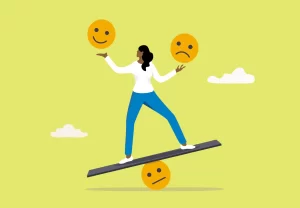 The Contradiction Between Health and Diet Information
The Contradiction Between Health and Diet Information
The Contradiction Between Health and Diet Information. In today’s digital age, the internet has become a vast repository of information, offering a plethora of advice and guidance on various topics. When it comes to health and diet, however, navigating the online landscape can often lead to encountering contradictory information. This contradiction poses a significant challenge, as individuals strive to make informed choices about their well-being.
Let’s delve into the complexities surrounding the clash between health and diet when seeking information online.
The Paradox of Dietary Advice
The internet is flooded with a myriad of dietary recommendations, each claiming to be the key to optimal health. One website may advocate for a particular diet, emphasizing its potential benefits, while another may vehemently oppose it, highlighting potential risks. Such conflicting advice can leave individuals perplexed and uncertain about which path to follow.
Conflicting Studies and Research
The contradiction between health and diet information is further fueled by the abundance of scientific studies and research available online. One study may suggest that a particular food group is beneficial for overall health, while another study may present contrasting findings. The interpretation and limitations of these studies can vary, leading to a lack of consensus and contradictory conclusions.
Influence of Personal Anecdotes
The internet is also a platform where personal anecdotes and experiences hold weight. Individuals often share their dietary success stories, attributing their well-being to specific diets or lifestyle choices. However, it is important to recognize that personal experiences may not necessarily reflect scientific evidence or be applicable to everyone. The allure of these anecdotes can create confusion and contribute to the contradiction between health and diet information.
Navigating the Contradiction
While the contradiction between health and diet information on the internet may seem daunting, there are strategies to navigate this complex landscape effectively:
1. Seek Reliable Sources: Rely on reputable websites, scientific journals, and recognized health organizations when researching dietary information. These sources often undergo rigorous scrutiny and adhere to evidence-based practices.
2. Consider the Big Picture: Look for consensus among multiple sources and consider the overarching principles of a healthy diet. Focus on a balanced approach that includes a variety of nutrient-rich foods, moderation, and individual needs.
3. Consult Professionals: When in doubt, consult healthcare professionals such as registered dietitians, nutritionists or health Coaches. Their expertise can help personalize dietary advice based on individual health goals and considerations.
4. Critical Thinking: Develop critical thinking skills to evaluate the credibility, biases, and motivations behind the information you encounter. Recognize that not all claims are backed by sound scientific evidence.
The contradiction between health and diet information on the internet can be perplexing, but with careful navigation, it is possible to make informed choices. By relying on reliable sources, considering the bigger picture, seeking professional guidance, and employing critical thinking, individuals can sift through the contradictions and make well-founded decisions about their health and diet. Remember, striking a balance between informed choices and personal well-being is key in this digital age of abundant information.
I’ve tried many types of foods, diets, and fasts, both wet and dry. Since I was certified as an International Health Coach, years ago now, I’ve experimented with many different and the same types of foods based on the latest scientific research. I still test and measure food to this very day in my own body. We are privy to so much new scientific information that smashes our old paradigms about health, diet and wellness.
We need to stay informed, test and measure what works for us as our body and mind are the most precious assets we have. My goal is to have outstanding physical health because, through my Executive Coaching Service, I see how clients’ minds, decisions and thought processes, hence outcomes are directly affected by their physical health.
Our bodies and minds are so intertwined that we must make it a priority to service both of them for us to become the best version of ourselves.
What can you do today to raise your knowledge, and understanding and take action on your physical well-being to ensure you are heading in the right direction of being the best version of yourself both physically and mentally?
Paul Simos is an accomplished Executive Life Coach, Health Coach and Certified Trainer.
He has a fundamental belief about his clients which frames how they work together i.e. they already have everything they need to achieve success. His role as a coach is to stimulate and challenge his clients to unlock their successful beliefs, skills, and behavior patterns.
 Big Vision Life Coach Open to new possibilites!
Big Vision Life Coach Open to new possibilites!

